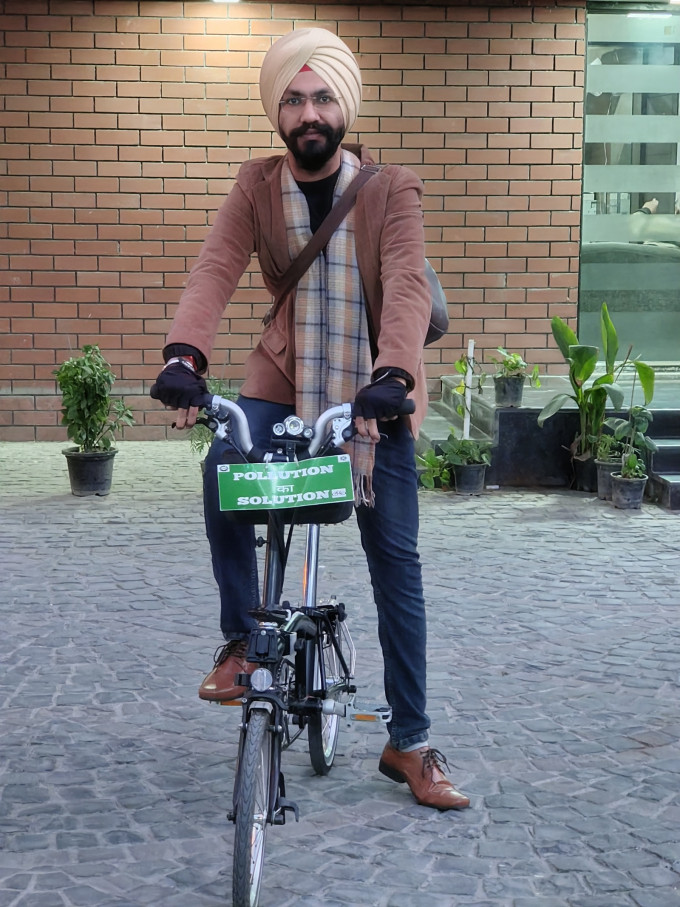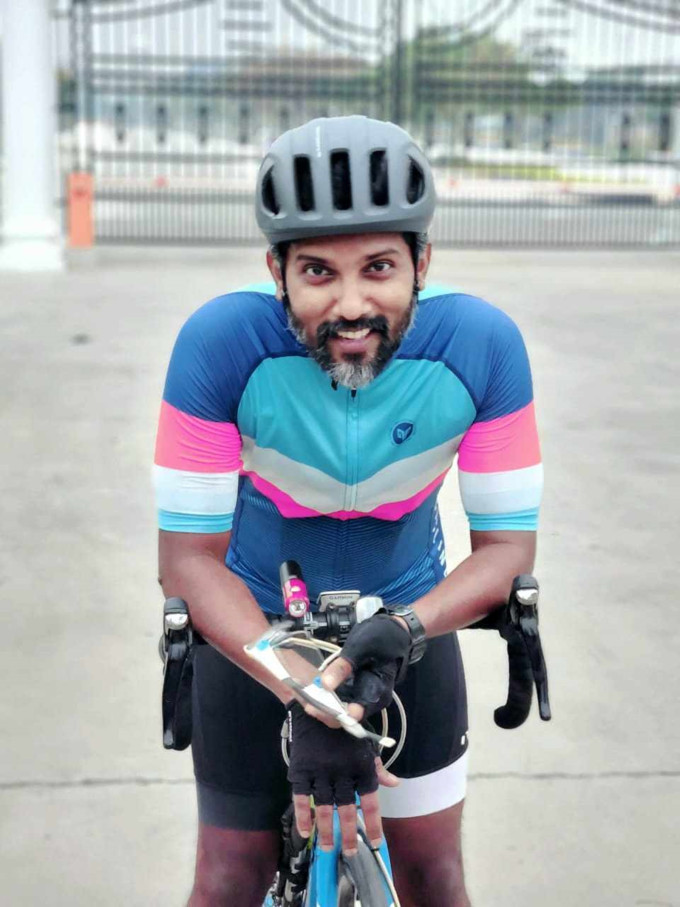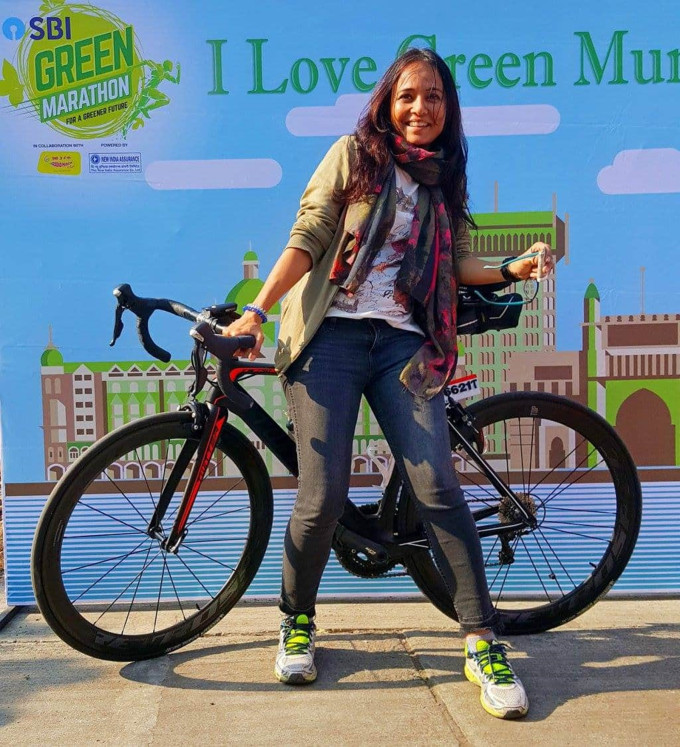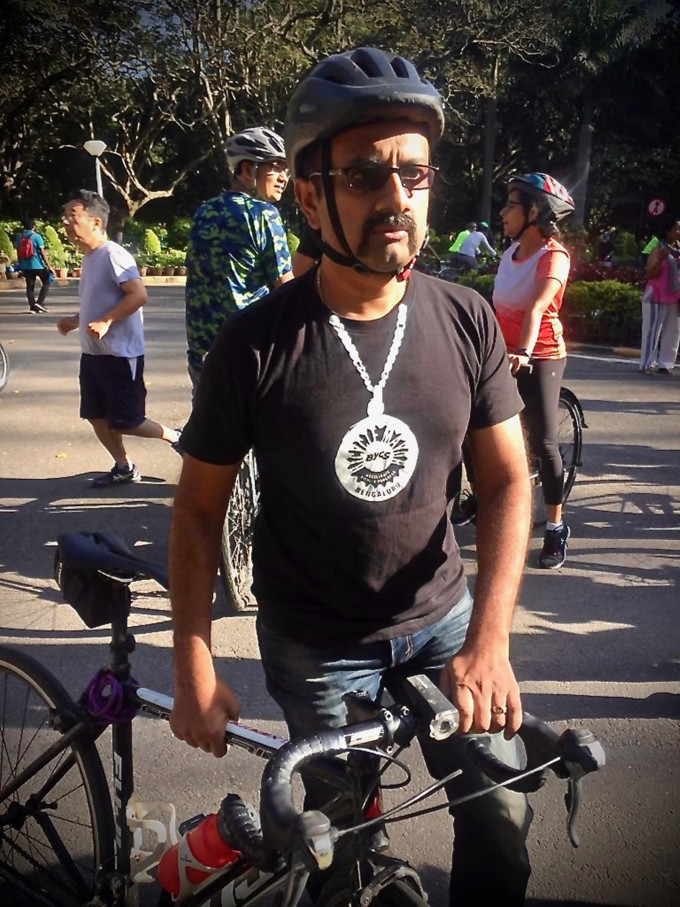Catalysts for Change: Meet India’s ‘Bicycle Mayors’ advocating cycling for a better tomorrow
Most people associate cycling with fitness or leisure, but for Bicycle Mayors (BMs), it is a powerful tool for change. Found in nearly every city in India and across continents (except Antarctica — thank God for that!), these mayors are part of a global leadership initiative, the Bicycle Mayor Program, started by BYCS Netherlands.
Their mission? To inspire a billion people to adopt cycling as a means to tackle civic issues, infrastructural challenges, sedentary lifestyles, and environmental hazards.

Who are Bicycle Mayors, and what do they do?
Bicycle Mayors are the face and voice of cycling in their cities. The Bicycle Mayor Network is a group of like-minded people who believe “Bicycles transform the cities and cities transform the world.” These mayors not only advocate cycling but also try to understand its role within their cities, considering historical context, public attitudes, and policy implications.
“Being a Bicycle Mayor isn’t just about making change; it’s about doing it intelligently,” said Sathya Sankaran, Bengaluru’s BM. With over a decade of cycling experience, he stressed the importance of applying systems thinking and public policy to create a lasting impact.
Becoming a Bicycle Mayor is a voluntary role. Dalip Sabharwal, 38, Delhi’s BM, has long advocated for cycling to work. His appointment as BM allowed him to connect with various organisations working towards sustainable development. “Many people cycle as a fitness activity, but that doesn’t make our cities healthier because they still use cars for daily commutes,” said Sabharwal, who now focuses on encouraging car users to switch to bicycles.
BMs also engage with stakeholders to develop cycling infrastructure and encourage public dialogue about cycling. They challenge the notion that bicycles are symbols of poverty. This perception can change when people from different economic backgrounds come together to cycle, according to Sourav Chattopadhyay, 30, BM of Howrah, a software engineer by profession.
 Dalip Sabharwal, BM, Delhi (Source: Dalip Sabharwal)
Dalip Sabharwal, BM, Delhi (Source: Dalip Sabharwal)
Transforming cities through cycling
Thane’s BM, Chirag Shah, is working to improve cycling infrastructure and promote cycling to work, school, and markets. His dream is to make Thane India’s cycling capital.
“The responsibility of representing cycling has been a learning experience. I understood the interplay between government, businesses, and society, and how to move the needle on cycling adoption,” said Sankaran, 50.
Chennai’s BM Felix John played an important role during the COVID-19 lockdown. Under him, bicycles were used to transport essential supplies. This grassroots effort won the UN World Bicycle Day Award in 2021. “As part of a larger collective known as Relief Riders of India, with over 750 volunteers, our initiative has been nominated for the Nobel Peace Prize 2022,” John told indianexpress.com.
 Felix John, BM, Chennai (Source: Felix John)
Felix John, BM, Chennai (Source: Felix John)
Firoza Dadan, 53, Mumbai’s first Bicycle Mayor and director of Smart Commute Foundation, notes that COVID-19 was a turning point for cycling enthusiasts. “With fewer cars on the road, more children came out to cycle. It was a boom like never before,” said Dadan, who has spent over two decades promoting cycling as a smart commuting choice in Mumbai with initiatives like Cycle2Work and MeCycleRider. Dadan considers investing in cycles as good as buying gold and wants people to embrace cycling for commuting.
 Firoza Dadan, BM, Mumbai (Source :Firoza Dadan)
Firoza Dadan, BM, Mumbai (Source :Firoza Dadan)
Challenges along the way
Being a BM comes with challenges. One of the biggest is resistance to change, especially when it comes to creating bike lanes or other infrastructure improvements. “No fitness activity can keep us healthy if our environment isn’t healthy,” said Sabharwal. He argued that 50 per cent of air pollution in Delhi NCR is caused by vehicular emissions, emphasising the need to reduce car dependency.
Sabharwal practices what he preaches—he’s reduced his car usage by more than 80 per cent. “I only use my car for family outings. For the past six years, I’ve been using bicycles for my daily commutes,” he said.
Another challenge is funding. Cycling infrastructure and programs are expensive, and securing the necessary funding isn’t always easy. Safety is also a major concern, with cyclists and pedestrians being the most vulnerable road users. “Road safety is about behavior, not just infrastructure,” said Sabharwal, who organises road safety campaigns through his club, Delhi Pedalers & Runners.
 Sathya Sankaran, BM, Bengaluru (Source: Sathya Sankaran)
Sathya Sankaran, BM, Bengaluru (Source: Sathya Sankaran)
In the hope of a better tomorrow with a focus on 2030
BMs are working towards making Indian cities more cycling-friendly through various initiatives, including school workshops, corporate sessions, awareness campaigns during marathons, etc. “Along with that we keep on doing giveaway campaigns for the captive cyclists which includes distribution of ‘safety lights’ for the safety of the cyclists to ‘scarf and caps’ to beat the heat,” said Sabharwal.
BMs and their volunteers aim to achieve 50 per cent of city trips by bicycle by 2030 through the 50 x 30 initiative, to achieve lasting change. This ambitious goal requires a drastic shift in transportation habits and a cultural change is necessary. “We launched the Commute-Bi-Cycle initiative, which includes an annual January challenge. Participants are encouraged, recognised, and inspired to continue cycling beyond the challenge,” explained John.
 Sourav Chattopadhyay, BM, Howrah (Source: Sourav Chattopadhyay)
Sourav Chattopadhyay, BM, Howrah (Source: Sourav Chattopadhyay)
Bicycles are the “greenest and most economical mode of transportation” one can think of, according to Sabharwal. “Cycling reduces traffic, which, in turn, reduces the mental stress of city driving. Most importantly, it helps us fight climate change. Whenever we talk about net zero goals, the most important step is to switch to bicycles,” he said.
Cycling is a fantastic way to improve health and fitness. It’s a low-impact exercise that improves cardiovascular health. It strengthens muscles and boosts mood. “It allows people to get active, be healthy and be a solution, not a problem in the city,” said Sankaran, who also founded a sustainability start-up.
Beyond fitness, cycling is a sustainable mode of transportation that can help reduce greenhouse gas emissions and combat climate change. “Cycling is mankind’s best invention to fight climate change, second only to walking,” Sankaran said.
In a world increasingly focused on sustainable living, the Bicycle Mayors of India are not just advocating for cycling—they are catalysing change, one pedal at a time.
📣 For more lifestyle news, click here to join our WhatsApp Channel and also follow us on Instagram
Disclaimer: The copyright of this article belongs to the original author. Reposting this article is solely for the purpose of information dissemination and does not constitute any investment advice. If there is any infringement, please contact us immediately. We will make corrections or deletions as necessary. Thank you.

